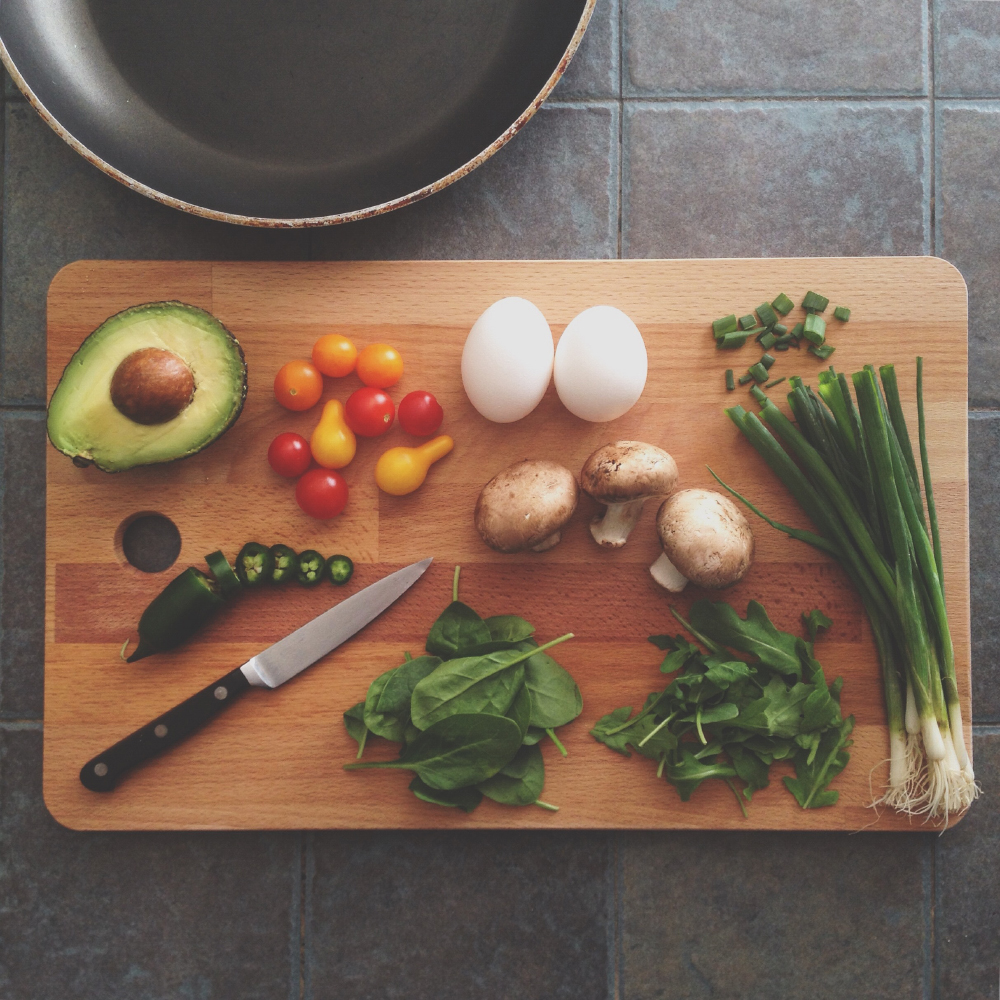“Let Medicine Be Thy Food, and Food be Thy Medicine”– Hippocrates
 Commercial processing of food strips it of the vitamins and minerals necessary for whole body health and a healthy brain-body communication. A diet high in carbohydrates (sugar sugar sugar!) can lead to dangerous spikes in our blood sugar causing drastic mood fluctuations. High carb foods even prevent proteins responsible for making our “feel good” molecules (neurotransmitters) from reaching our brain and nervous system.
Commercial processing of food strips it of the vitamins and minerals necessary for whole body health and a healthy brain-body communication. A diet high in carbohydrates (sugar sugar sugar!) can lead to dangerous spikes in our blood sugar causing drastic mood fluctuations. High carb foods even prevent proteins responsible for making our “feel good” molecules (neurotransmitters) from reaching our brain and nervous system.
Processed foods often have preservatives, colorants and other chemicals added to them. These additions are like anti-foods for our body. In an effort to clean-out these anti-nutrients, our liver and detoxification system is often taxed, and these additives can even be toxic to us. Processed foods and added chemicals can be destructive to our gut cells and flora, damaging key cells responsible for making our natural anti-depressant serotonin. We need healthy gut bacteria to make this essential mood elevator. Only unprocessed, unadulterated food can help to nourish these bacteria and repair this system.
“It is estimated 90% of our body’s serotonin is made in the gut”
Here are some essential tips to improve your good mood foods:
EAT PLENTY OF PROTEIN
Proteins are composed of strings of amino acids. Amino acids are the building blocks of our body’s “feel good” molecules. Protein rich meals help to balance blood sugar in our body and decrease mood swings. Good moods are protein dependent! Include protein in every meal to balance blood sugar, reduce mood and energy swings, and improve mood overall.
INCLUDE VITAMIN AND MINERAL-RICH WHOLE FOODS
Vitamins and minerals provide necessary building blocks, co-factors and catalysts to biochemical reactions throughout the body. These reactions keep us healthy and happy. Calcium, magnesium, vitamins D, A and the B vitamins are especially important for a sense of well-being and energy throughout the day.
HEALTHY FATS
Healthy fats increase the availability of amino acids to our brain and nervous system. Every cell in our body is composed of a membrane made of fats, and the cells of our brain and nervous system are especially fat-rich! Our brain cells NEED fat for communication with the rest of our body. It is important to distinguish good fats from bad-fats for health. Bad fats include trans-fats, hydrogenated, and oxidized oils, and oils that have been fried in multiple times. These are commonly found in fast food and processed foods. Grass-fed animal products contain a healthier fat-profile than grain-fed animal products do, which is what you usually find in the grocery store unless grass-fed is specified.
Here’s a tip! Decrease oxidation (aka destroying health benefits) of healthy oils by storing cooking oils and nuts in the fridge, and cooking with oils that are stable at higher temperatures (high-heat oils). Coconut and avocado oil are good cooking oils.
GLUTEN FREE, CASEIN FREE DIET (GFCF)
It’s not just a trend, trust me! In certain individuals, the body cannot completely digest gluten and casein (a protein found in milk products). It is theorized that in sensitive individuals, these undigested proteins can cross the blood brain barrier and react with the brain’s opiate receptors, causing addiction to these foods, along with withdraw symptoms (cravings, irritability, sleepiness, mental fogginess, fatigue), and mood fluctuations when initially removing them from the diet. Once a sensitive individual eliminates these foods from their diet, they may see their mood stabilize and improve over time. A 6-week trial on a GFCF diet can be a great treatment strategy for willing patients with mood-related problems.
But what do I eat?
PROTEIN
- High protein foods: chicken, fish, turkey, beef, wild game, pork, eggs, cottage cheese, greek yogurt
- Lower-protein foods (still great!): nutritional yeast, seeds, nuts, beans, legumes, cheese, yogurt, milk
VITAMIN AND MINERAL-RICH WHOLE FOODS
- Colorful vegetables and fruits. Favor dark colored fruits (like berries) and avoid sugar-rich fruits like peaches, grapes, and bananas.
- You want dark leafy greens (at every meal, and for snacking!)
- Nuts, seeds, butter, milk and meat from grass-fed animals, cod liver oil, small whole fish, shell fish, fish eggs, nutritional yeast, 100% whole grains
HEALTHY FATS
- Oils (olive, walnut, avocado, sunflower, sesame, coconut)
- Nuts, seeds, nut butters, avocado, coconut
- Butter, whole milk, eggs, meat and organ meats from grass-fed animals
- Cod liver oil, fish oil, small whole fish, shell fish
GLUTEN FREE, CASEIN FREE DIET (GFCF)
- EAT: Wild rice, quinoa, millet, amaranth, teff, sorghum
- AVOID gluten containing grains: wheat, rye, barely, spelt, triticale,, commercially processed oats.
- AVOID: Casein is found in animal milk and milk products, and some veggie based cheeses and vegetarian products (read labels).
CUT OUT BAD MOOD FOODS
- Processed, packaged, boxed, and canned foods, especially those with added ingredients that were probably made in a lab.
- Fast food
- “Diet” foods
- White bread, white rice, pasta, sugar, baked goods, bagels, soda
- Low protein/high carbohydrate foods
- Sugar-laden cereals, bars, juices and snacks
- Fried, hydrogenated and trans-fats
- Processed soy products, and other processed “imitation” foods
- Artificial sweeteners, aspartame (NutraSweet), MSG, sodium benzoate
- Excessive alcohol and caffeine consumption
This is not a diet. It is a lifestyle change! Not only will food like these improve your mental health it will undoubtedly nourish your whole body.
Resources:
Weston Price Foundation
The Mood Cure, Julia Ross
Whole Grains Council
Opioid Peptides Derived from Food Proteins- Zioudrou, Christine, et al.

